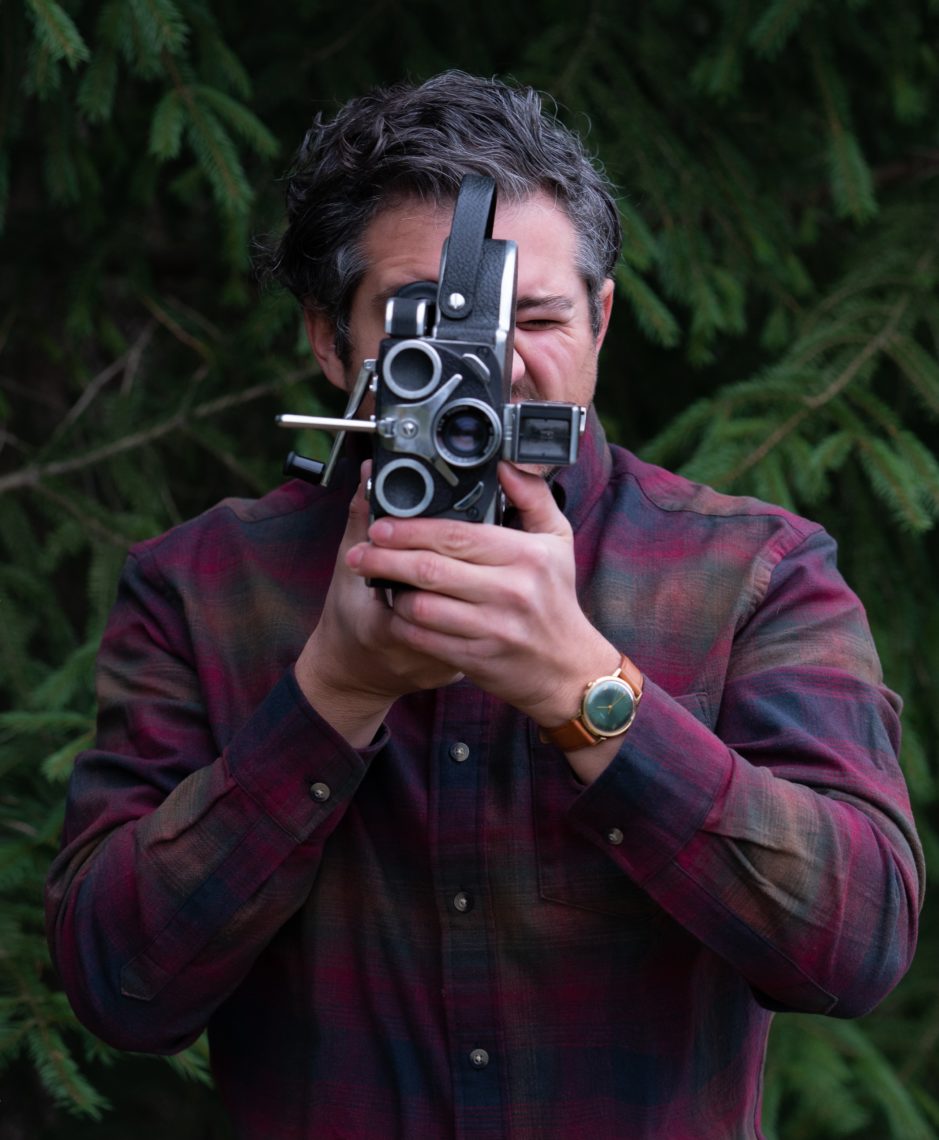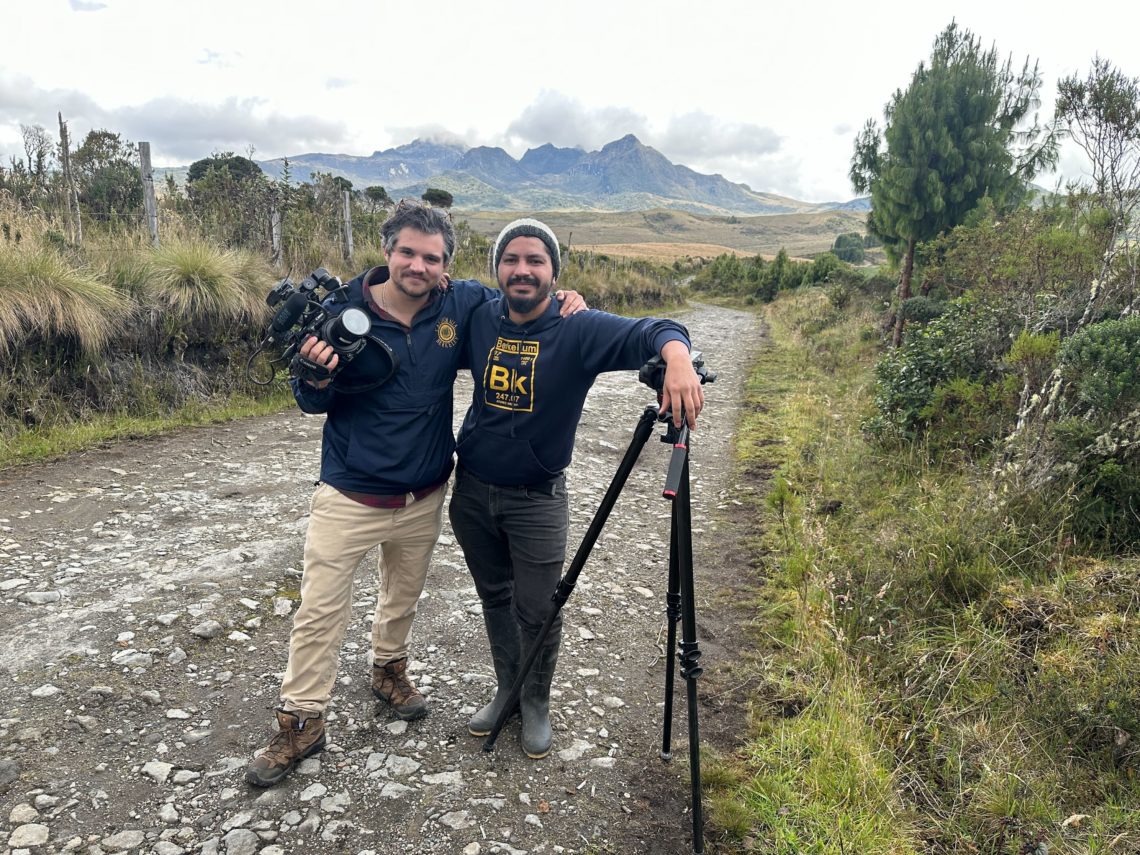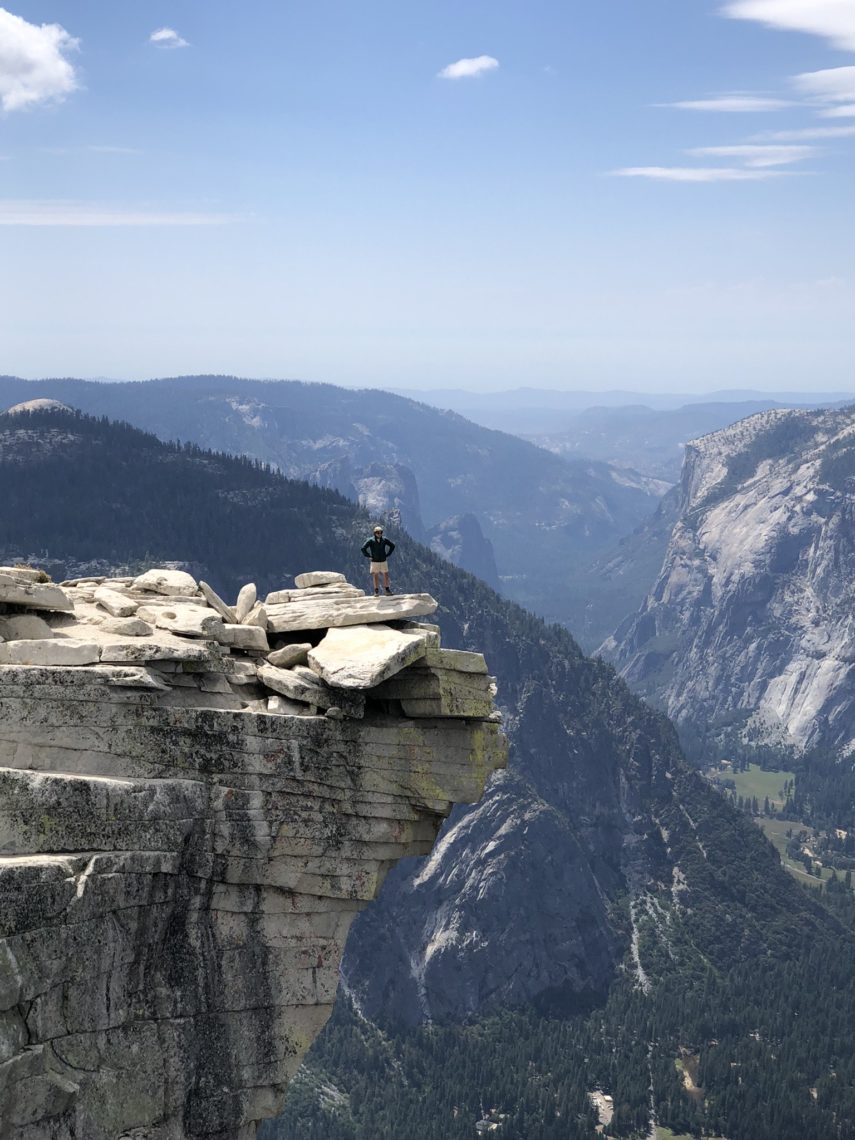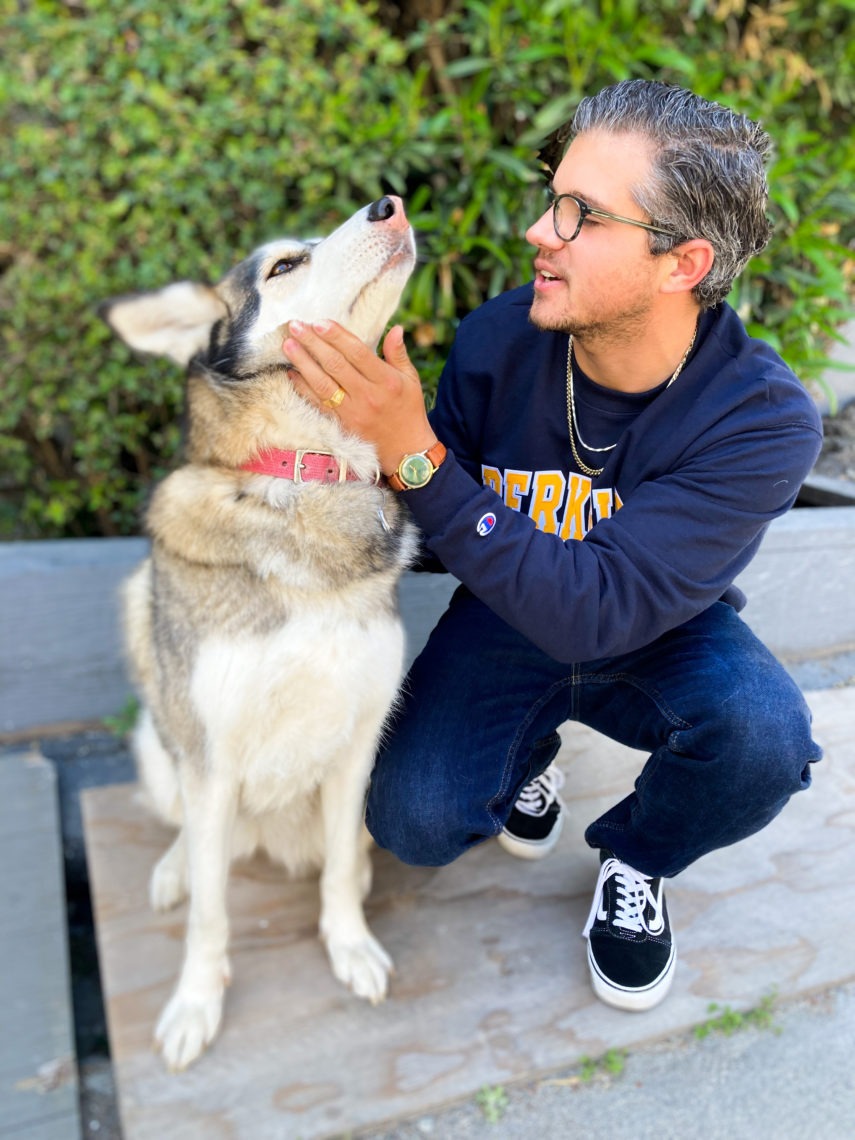Chris Ehrmann (‘23) has been named the Brian Pollack Fellow in Documentary Filmmaking at the UC Berkeley Graduate School of Journalism.

Photo Ben Ehrmann
The $5,000 fellowship, established in 2018, is awarded annually by committee to a promising second-year documentary film student with a passion for tackling social justice issues and exploring the outdoors.
The fellowship was established to remember alum Brian Pollack (‘08), who died in 2016, leaving behind a community of friends and family to honor his legacy. A video director/producer and documentary filmmaker, Pollack was passionate about shedding light on important issues worldwide. His investigative reporting took him around the U.S. and the world, covering topics ranging from the disposal of oil waste in California, and the power of voting in swing states, to the sacrifices of American troops in Afghanistan.
Ehrmann will continue Pollack’s legacy with a film he is co-directing with fellow student César Rojas Ángel (‘23) which follows an indigenous leader in Colombia at odds with her community over destigmatizing medicinal cannabis, while leading the way for peace in her region that has suffered extensive violence stemming from the war on drugs.

Producer/directors Chris Ehrmann and César Rojas filming their thesis documentary in Cauca, Colombia.
“With his connection to nature and a keen eye for visual storytelling, Chris will undoubtedly bring a robust cinematic vision to the documentary,” said Jennifer Redfearn, head of the documentary program. “When immersed in nature, Chris finds peace and discovers inspiration for his work and visual ideas. I’m so excited about his and César’s film.”
As a director, Ehrmann is always seeking a delicate balance. He wants his films to be “quiet, personal and intimate,” he said. “But at the same time, I want them to be grandiose. Not in a flashy sense, but in just the scope of things.”

Ehrmann hiking Yosemite’s Half Dome.
Just as nature makes you feel small in a huge space, Ehrmann wants to recreate that vastness in his films. He recalled the first time he saw a Douglas fir tree in Oregon, as he was driving through the Cascades. “I was in utter disbelief at how beautiful it was. I always knew it was beautiful, but being in there, it just blew me away.”
Movie theaters evoke that same emotional response for him. When he’s watching the credits roll in silence, he said he’s reflecting on the cinematography and fluidity of scenes, the subtext of the film and the overarching narrative.
Nature and movie theaters are Ehrmann’s safe spaces. “They make you feel a small, small part of this big, huge natural world,” he said. “But they also bring me this sense of security.” And that is exactly what Ehrmann aims for his films. He wants his stories to connect to a larger reality and to make us give thought to how we’re interconnected.
At the beginning of his career, Ehrmann hit the ground running as a legislative reporter in Lansing, Michigan for The Associated Press where he covered the capital.
His next job was at a small paper in Newport, Oregon where he covered many things, but found a passion in covering the unhoused of the city.
“Back in 2017, I felt a lot of coverage around homelessness was saturated with experts and experts,” Ehrmann said. Determined to present them in a more intimate way, he set out to direct his first documentary. “I interviewed a lot of people. I really asked them who they were and what their thoughts were.” That simple yet empathetic exercise garnered him an Emmy nomination in 2019.
His career is about finding beautiful, humane and thoughtful ways to cover the most urgent stories of our time.
His interest in social justice started very early in his life, helping his mom—who works at a Latinx nonprofit in the metro Detroit area. She helped him understand his complex Latino heritage, become fluent in Spanish and just how important it is to be empathetic.
He studied broadcast journalism and international studies at Wayne State University in Detroit, belonging to an organization called the Journalism Institute for Media Diversity. More recently, Ehrmann was a Report for America corps member where he covered criminal justice reform and mental health services in addition to making an across-the-country audio documentary on COVID-19 and the documenting the protests following the murder of George Floyd.

Tundra and Chris in Berkeley.
Ehrmann admits to being an obsessive type of artist. “I have a complete and utter obsession with cinema, international storytelling and producing thoughtful works of art.”
Since attending Berkeley, he screened his first film at a film festival in Santa Cruz and had a video published worldwide in Vogue India. He also received a national scholarship to study Arabic in his first year of graduate school.
As always, his beloved dog Tundra is his “best companion for everything.” Last summer, just before resuming classes at Berkeley, he did an almost 15-hour hike in Yosemite’s Half Dome.
Still in Colombia filming his master’s thesis, Ehrmann reflects it’s been a whirlwind of experiences that he’s been grateful to have had. “I really believe my class, under the counsel of Jennifer Redfearn, is entering a new era of non-fiction storytelling: one that is interconnected, cinematic and not creatively beholden to the status quo.”
By Irene Benedicto (‘23)
